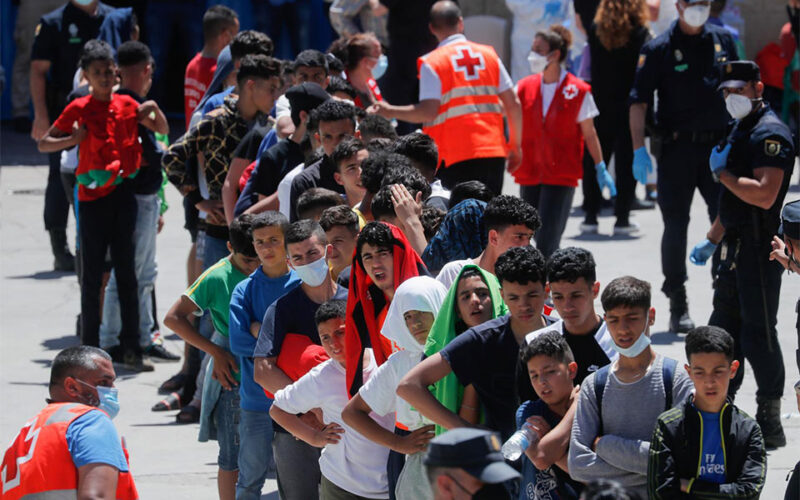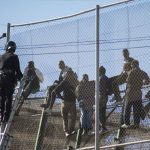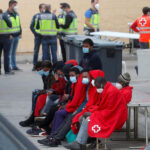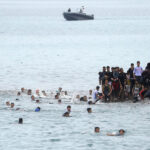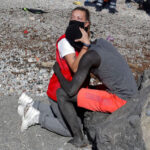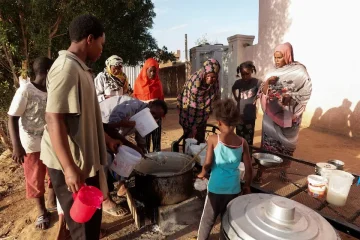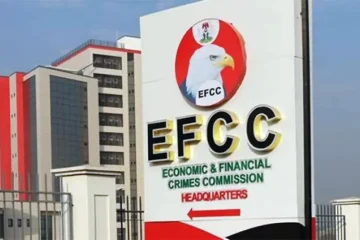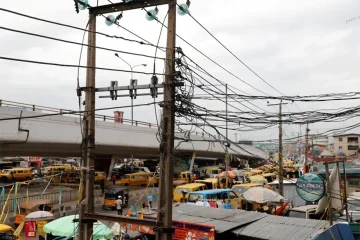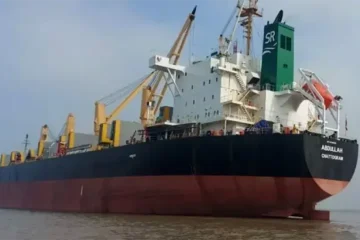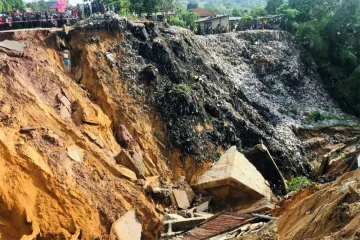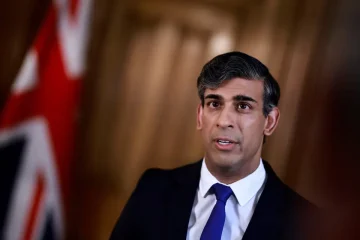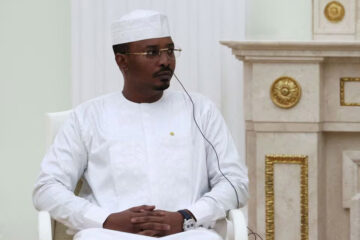MARIANO VALLADOLID and AHMED ELJECHTIMI
HUNDREDS of migrants tried to force their way past tightened security into Ceuta yesterday, as Spain pressed on with the expulsion of thousands who had swum or climbed into its North African enclave over the past two days.
Around two-thirds of the roughly 8,000 migrants who made it to Ceuta, including unaccompanied children, have been expelled, Spanish authorities say. Many of those sent back said they were determined to try again in their determination to reach Europe.
As dense afternoon fog descended, hundreds of young men made a fresh attempt to approach the roughly six-metre-high metal border fence before being repelled by Moroccan police.
By evening, a crowd of migrants still waiting for a chance to cross began to disperse as Moroccan police urged them to leave an area near the border.
Others had entered the water and began swimming towards Ceuta’s beach a few hundred metres away – with live Spanish television showing the army meeting boys as they reached the shore. Some 1,500 underage migrants are in reception centres in Ceuta from this and previous waves, Spain said.
On the northern tip of Morocco across from Gibraltar and with a population of 80,000, the enclave has periodically been a magnet for refugees seeking a quick way into Europe, but Rabat cracked down on border traffic in recent years.
“I am not losing hope. I have friends in Ceuta where I can stay till I get a chance to cross to Spain,” Souhail Abbadi, a man in his 20s from Tangier in northwest Morocco, told Reuters.
Earlier, Spanish police and soldiers escorted long lines of Moroccans and other mainly sub-Saharan Africans through a gate back into Morocco.
“We were given juice and a cake, that is all,” said Mohamed, from Ait Melloul in southwest Morocco, after Spanish soldiers sent him back as soon as he arrived.
He and many other returnees gathered in the Moroccan border town of Fnideq, where they said they were receiving no aid.
‘WHAT DID SPAIN EXPECT?’
Many of the migrants still in Ceuta were children, including some as young as seven and some without families, said Spain’s Social Rights Minister Ione Belarre.
“Many of them did not know the consequences of crossing the border. And many of them want to go back,” she told broadcaster TVE.
Reuters TV footage showed hundreds of teenagers being processed at a warehouse where Red Cross officials gave out food and drink.
Ceuta’s leader Juan Jesus Vivas has accused Rabat of initially failing to patrol its side of the border properly, possibly in retaliation for Spain’s discreet admission of a Western Sahara independence leader for hospital treatment.
Morocco’s minister of state for human rights, El Mustapha Ramid, suggested late on Tuesday that Rabat was justified in relaxing border controls after Polisario Front rebel leader Brahim Ghali entered Spain.
“What did Spain expect from Morocco, which sees its neighbour hosting the head of a group that took up arms against the kingdom?” he said in a Facebook post.
Madrid said it had taken a humanitarian decision to allow in Ghali, whose movement seeks independence for Moroccan-run Western Sahara.
In a further twist, Spain’s high court summoned Ghali to appear on June 1 for a preliminary hearing in a war crimes case against him but he declined to sign the papers, a court document seen by Reuters on Wednesday showed.
A source close to the investigation said he might seek to claim diplomatic immunity under an Algerian passport.
Spain’s Prime Minister Pedro Sanchez did not link events in Ceuta to Ghali’s situation, calling Morocco a friend of Madrid, though Rabat recalled its ambassador to Madrid for consultations. Moroccan authorities did not respond to requests for comment.

